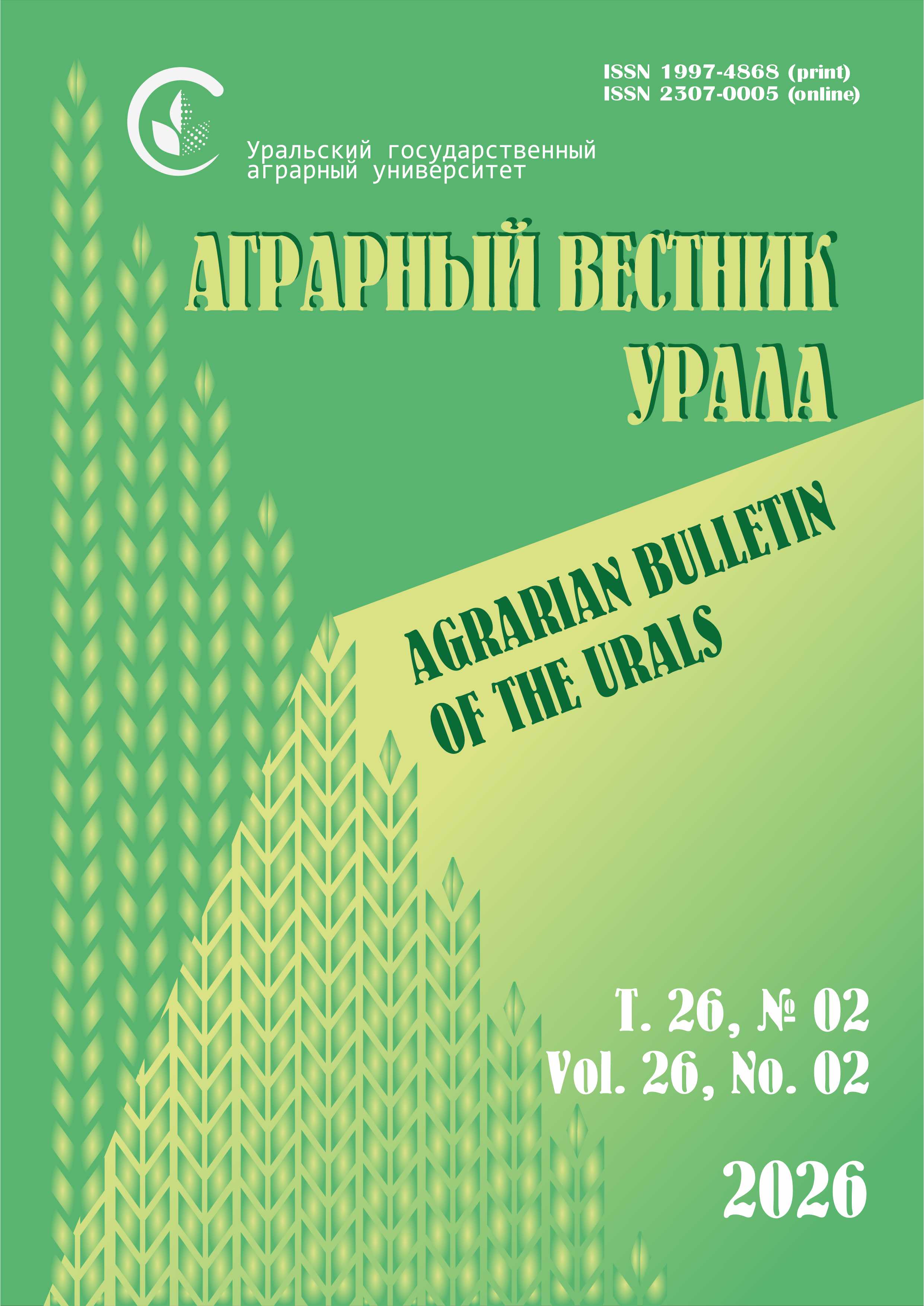E. P. Sukhareva, A. V. Belikina, A. V. Solonkin
Federal Scientific Center of Agroecology, Integrated Land Reclamation and Protective Afforestation of the Russian Academy of Sciences, Volgograd, Russia
E mail: This email address is being protected from spambots. You need JavaScript enabled to view it.
Volume 25 No. 10
Date of paper submission: 20.03.2025, date of review: 24.06.2025, date of acceptance: 30.06.2025
Published: 10/31/2025
Abstract. Russia is a major producer of winter wheat grain in the world. Ensuring food security of the Russian state is closely related to the production of seeds of major agricultural crops. The processes of intensification of seed production are aimed at increasing yields and improving the quality of seed material and include the use of micro fertilizers and growth regulators. The purpose of the research: to determine the effect of micro fertilizers and growth regulators on the yield and quality of winter wheat, and to evaluate their economic efficiency. Methods. To achieve the set goal, an experiment was conducted on the right bank of the Volga River in the chestnut soil zone with hot, dry summers and low air and soil moisture. Winter wheat was sown with high-quality original seeds. In the autumn tillering phase and in spring during heading, foliar feeding of crops with micro fertilizers and growth regulators was carried out according to the experimental scheme. Observation of the growth and development of winter wheat plants, phonological and meteorological observations were carried out. The crop structure was determined by the method of selection and analysis of sheaf material from accounting plots, with subsequent recalculation of data per 1 ha. Results. It was found that the highest yield and high-quality seeds were obtained in the variants where micro fertilizers and growth regulators were added to crops in the autumn tillering phase and in spring during heading. The yield of winter wheat was 4.35 t/ha and 4.59 t/ha, respectively. The effect of micro fertilizers and growth regulators on the grain yield of winter wheat was 98.36 %, production conditions 1.64 %. The economic efficiency of producing second-class winter wheat grain was 37.6 % and 43.3 %, respectively. Scientific novelty. The use of micro fertilizers and growth regulators in the autumn tillering phase and in spring during heading will have a beneficial effect on winter wheat crops, increase their resistance to a biotic natural phenomena and increase the productivity and quality of products. The increase in costs for micro fertilizers is offset by the amount of grain and its quality.
Keywords: winter wheat, yield, seed quality, micronutrient fertilizers, growth regulators, economic efficiency
Acknowledgments. The research was carried out within the framework of State Assignment No. 122020100448- 6 “Creation of new competitive forms, varieties and hybrids of cultivated, woody and shrubby plants with high productivity, quality and increased resistance to adverse environmental factors, new innovative technologies in seed production and nursery production taking into account varietal characteristics and soil and climatic conditions of arid territories of the Russian Federation”.
For citation: Sukhareva E. P., Belikina A. V., Solonkin A. V. Application of micro fertilizers and growth regulators in the production of winter wheat seeds in the arid climate of the Lower Volga region of Russia. Agrarian Bulletin of the Urals. 2025; 25 (10): 1577‒1588. https://doi.org/10.32417/1997-4868-2025-25-10-1577-1588 (In Russ.)
Download the full text of the article












